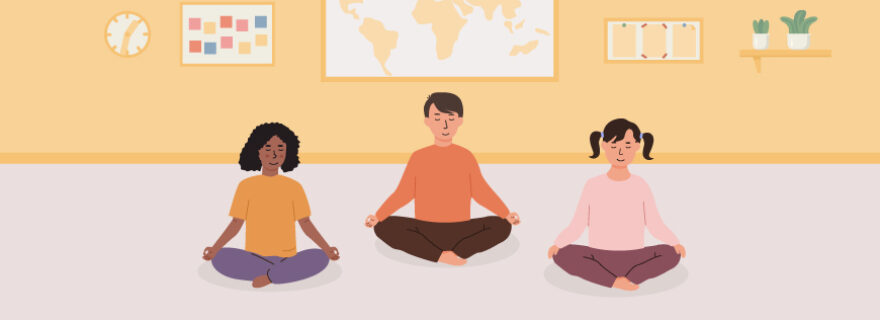Change the world by meditating
“Modern problems require modern solutions”. In a rapidly changing world we face many challenges, from climate change to pandemics, famine, and wars. They all require us to invent, create, and think outside the box: a process referred to as divergent thinking.
In the past, innovations such as electricity, cars, anaesthetics, and antibiotics have shown how scientific creativity can change human lives forever. In this context, divergent thinking plays a key role. It means generating ideas and finding multiple solutions to a problem, while combining existing knowledge with unrelated problems in a novel and meaningful way. In our modern world we need to be creative: think outside the box and find innovative solutions. If we want to save the planet, cure diseases, fight hunger, and establish peace, divergent thinking could be more important than ever.
This is especially essential in educational settings, such as schools and universities, where creativity and divergent thinking unfortunately often fall short. Within the strict requirements of a fixed curriculum, attention tends to be restricted to convergent thinking: finding the “correct” answer to a problem. This raises the question of how teachers can foster divergent thinking and creative problem-solving while still having enough time to cover all necessities of the program.
Besides conventional methods to stimulate divergent thinking, such as brainstorming, research suggests a new way of making people think in novel ways: Open-Monitoring-Meditation (OMM). Studies show that 20 minutes of OMM-focused yoga can have positive effects on originality and flexibility of divergent thinking, even in people without prior experience. This might sound counterintuitive, given that OMM does not focus on actively thinking and finding solutions, but rather on the opposite: passively letting thoughts wander in a non-judgmental way.
So, how does OMM lead to better divergent thinking?
The fixedness of our brain patterns…
Throughout our lives, our brain adapts to the world around us. What is perceived is the brain’s best prediction of the environment. As we try to make sense of the people and environment surrounding us, we develop fixed thought patterns that tie us to thinking in known and familiar ways. Similarly, we are unable to use objects in a non-traditional way: a bias termed “functional fixedness”. Even though these mental fixations are adaptive and important for processing information in an efficient way, they reduce our creativity and direct us to common and known solutions, making it difficult to think out of the box.
…is weakened through meditation
However, meditation seems to “weaken” these top-down control processes. In OMM, thoughts can wander in a random, non-forced, and new manner, facilitating a novel stream of thoughts, which is not bound to acquired and fixed thought patterns. This enhancement of cognitive flexibility helps to overcome these ingrained processes and facilitates divergent thinking, which makes it easier to combine existing knowledge and novel problems in a meaningful manner.
Moreover, the ‘non-reactive awareness’ of our automatized responses to the environment in OMM might contribute to divergent thinking. In other words, we normally tend to assign a value to our thoughts and experiences, which makes us easily discard solutions that do not at first sight seem plausible and valuable. However, meditation has been shown to reduce this habitual response. By letting thoughts wander in a non-judgmental way, we might become more open to non-habitual, unfounded, and implausible streams of thought.
Meditation as part of the curriculum
These findings suggest that meditation should be implemented more, especially in educational settings where the focus is still often on factual knowledge, grades, and standardized tests. This seems particularly ironic, given that our children will be those fighting against the ever-worsening effects of climate change, overpopulation, famine, and wars. It is time that educational institutions left more room for fostering creativity and divergent thinking by making meditation an inherent part of people’s schedules and everyday lives. Only then we will raise children that can cope with the competitive nature and increasing challenges of this world.





